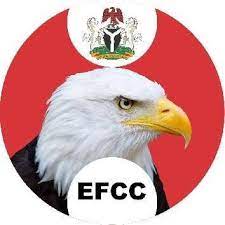Now that campaigns are official for next year’s elections, let us spare a thought for what is really at stake.
Although the subject appears to be, it is not political office. It is not about who will become president or governor or senator or whatever. It is about trust: trusting in the government.
Since 1999, successive Nigerian governments have carelessly squandered this priceless currency, each one more irresponsibly than its predecessor, so that what is left today is a tragic shell. A citizen knows what a government representative is going to say before they even get out of bed.
What is worse, he knows that what the government is going to do, if anything, is either different from, or inferior to what it has proclaimed. He sees officials voraciously and persistently serving themselves and servicing their own pockets.
That is why it is important to reflect on a campaign such has now opened in Nigeria in terms of how much a candidate is to be trusted. It is the nature of an office-seeker and of persons who speak for him to arrive with a truckload of promises.
You must, Citizen, re-define this transaction. Ask simple questions, such as: “Who are you? Where have you been and what have you accomplished? Who trusts you, and why should I? Who does not trust you, and why do they not? Where can I read about you?” You can even video-record the transaction on your phone, unless he objects, in which case the transaction is over.
These polite questions must precede disbursements to you of colourful manifestoes. There is no need for fights, let alone insults. If you cannot trust a candidate, he ought to have no access to your political affection, period.
Unless of course you are on sale. In which case once the purchase is completed he no longer campaigns to you, you campaign for him.
Moving on: It is that time of the year, and so I continue this one with a familiar quote: “The [Economic and Financial Crimes Commission] shall, not later than 30th September in each year, submit to the National Assembly, a report of its activities during the immediately preceding year and shall include in such report the audited accounts of the Commission.”
So says Section 37 of the EFCC Establishment Act, which is now mercifully back on the website of the Commission following a certain altercation last year.
With September 30 this year having been two days ago, I have now commenced my annual ritual of trying to obtain a copy of the report. There being nothing in that law which prevents the EFCC from proudly giving away copies to citizens should it wish to do so, I hereby declare to the commission my interest in reading one, even an electronic copy.
I acknowledge, as I have from the beginning, that the commission’s obligations in this respect are limited. It used to proudly declare this on its digital front lawn as you arrived: “The Commission is under obligation by law to make a comprehensive report of its activities to the National Assembly, not later than the 30th of September every year.
“The EFCC Annual Report presented yearly to the National Assembly, is a compendium of all activities of all units of the Commission including Operations, Administration, Legal & Prosecution, Media, Accounts, Training School, etc. The Commission is not under obligation to publish it, but having been presented to the National Assembly, members of the public may be apprised of its contents by their elected representatives or seek to obtain copies by laid down procedures of the Senate and House of Representatives.”
Among others, I referred to this in a contribution in 2009, and following the assumption of leadership of Major-General Muhammadu Buhari in 2015.
The problem seems to be that once its leaderships discovered that being accountable is considerably heavier than being powerful, they decided simply to stay powerful, eliminating that bold proclamation.
But having lost heart, the EFCC appears also to have lost the plot: Last week, chairman Abdulrasheed Bawa appeared by proxy at an event at the Mountain of Fire and Miracles Ministries in Abuja, waving not the EFCC Act, but the Bible.
Staring at Nigeria’s youth, he leveled bullets about the sanctity of heaven. “There is no place for a fraudster or corrupt person in the Kingdom of God,” said, quoting copiously from the Holy Book and perhaps thumping the table with his right fist. “If anyone engages in these vices, he or she will suffer punishment from God and man,”
Chapter 7 of the EFCC Act avails the agency of immense authority over all persons, corporate bodies and organizations for these crimes. To his commission is granted wide swathes o power over the Money Laundering Act 2003; the Advance Fee Fraud and Other Fraud Related Offences Act 1995; the Failed Banks (Recovery of Debts) and Financial Malpractices in Banks Act 1994; the Banks and other Financial Institutions Act 1991; the Miscellaneous Offences Act, and any other law or regulations relating to economic and financial crimes, including the criminal code or penal code.
That is: every single area relating to economic and financial crime in Nigeria, and none of them has anything to do with getting to heaven. And yet, with the country tottering on the precipice largely owing to the menace of such crime in every direction beginning from Abuja, the chairman goes to a church to preach a sermon.
It is yet another reminder that so-called warriors fighting the wrong or no wars got us where we are. It is why I wrote last year that rather than implement the law, by its performance, “the EFCC has taken sides to deepen poverty, injustice, insecurity, and hopelessness in Nigeria.”
Only last month, for instance, Premium Times did a review of the EFCC’s track record of allegedly investigating state governors for corruption, with almost every one of them getting off scot-free.
The paper recalled how, in 2021, Bawa disclosed, as evidence the EFCC was winning the war on corruption, that nearly 1,000 corrupt Nigerians were convicted between January and September 2021. But “only two high-profile public office holders were in the list of nearly the 978 convictions that Mr Bawa cited.”
By every measure, that is failure so colossal it smells of complicity. Bawa and other top officials should resign.
Finally, Ahmad Lawan, the President of Nigeria’s 9th Senate, will neither be President of Nigeria next year as he had hoped, nor will he even be in the 10th Assembly. The weakest and most complicit of the Senate Presidents since 1999, the man who thinks of the legislature as a department of the executive was routed by a which ruled that he had not even participated in the authentic party primary to select the candidate of his Yobe North Senatorial District.
Maybe Lawan will return to his former trade as a university teacher, re-register as a member of teachers’ union, and join the strike in progress.
I welcome Bashir Machina, who displaced Lawan. Welcome to the big time, Mr. Machina. How will history remember you?
This column welcomes rebuttals from interested government officials.
• @Sonala.Olumhense

 Join Daily Trust WhatsApp Community For Quick Access To News and Happenings Around You.
Join Daily Trust WhatsApp Community For Quick Access To News and Happenings Around You.

